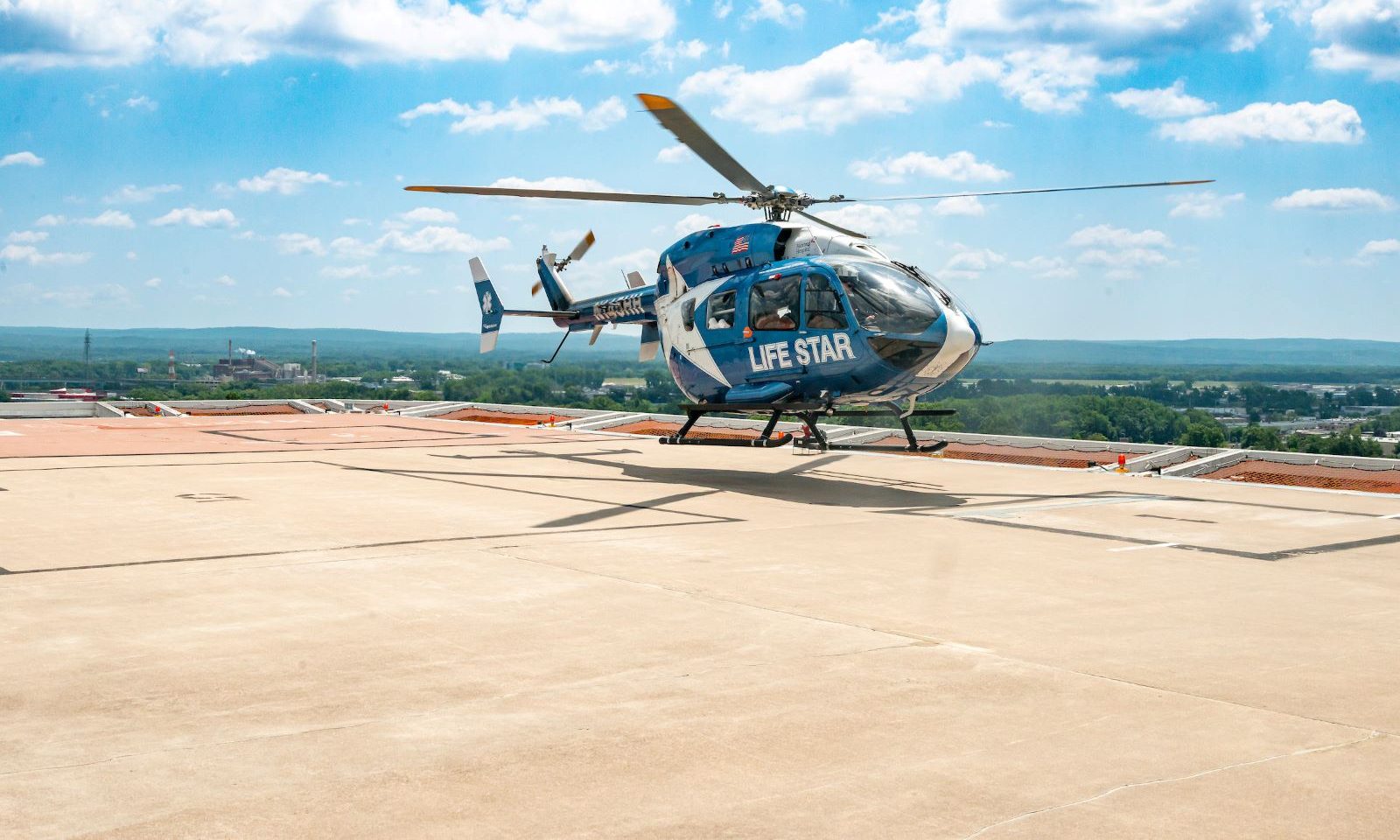<< Back
LIFE STAR Helicopter First in State to Carry Plasma for Trauma Blood Transfusions

May 18, 2023
Hartford HealthCare’s LIFE STAR helicopter is the first in the state to carry blood plasma for patients needing blood transfusions in the field.
LIFE STAR has been carrying blood products since 2015, explains Brendon Colt, flight paramedic with the service. “We have been carrying packed red blood cells and we wanted to bring more standardized trauma care. The standard has become to infuse plasma and red blood cells at the same time during trauma resuscitation. Research suggests there may be better outcomes when both components are infused,” he says.
Colt says the team reached out to the blood bank at Hartford Hospital, and the colleagues there were very supportive of the request. They are now able to have plasma thawed and available and provide the LIFE STAR teams with two units of plasma that they carry with them at all times.
He says plasma makes up 55% of blood volume. Plasma is the liquid separated from the red cells when a unit of whole blood is manufactured, it is 95% water and the rest is made up of platelets, coagulants, proteins and nutrients.
“We want to be able to simulate as close as possible the actual blood being lost, the standard is 1 to 1, so we would give 1 unit of plasma and then 1 unit of red blood cells, targeting decent blood pressure and with the goal of perfusion of major organs,” Colt says. “We want to optimize their blood pressure and heart rate, extending their stability until we can get them where they need to be, whether that is an operating room or an ICU.”
“This gives us another tool in our toolbox to help optimize patient care,” Colt says.
Blood bank colleagues worked to support request
Heidi Belcourt, MT, ASCP, manager, laboratory services, transfusion services at Hartford Hospital, says the LIFE STAR team had asked about carrying plasma earlier this year and what would be involved. She worked with Heather Standish, nurse director of LIFE STAR to determine protocols.
Belcourt says they revalidated the coolers to make sure they are cold enough for the blood products, which must be kept at 1 to 6 degrees Celsius. The temperature stays constant for 16 hours, so coolers are switched out to stay cold each shift. Once thawed, plasma must be used within 5 days, so on the fourth day or so any unused units are brought to Hartford Hospital, and they try to use them to reduce waste, she explains.
Belcourt and Bradford Sherburne, MD, medical director of the clinical lab and blood bank, were involved in the process to set up the new processes at Backus Hospital, MidState Medical Center and Hartford Hospital.
“We were already stocking plasma at our blood banks in Backus and MidState, so we made sure we increased inventory to meet the needs and set up systems to thaw and replace it regularly,” she says. The coolers are stocked at the hospital that each helicopter and LIFESTAR team is based at.